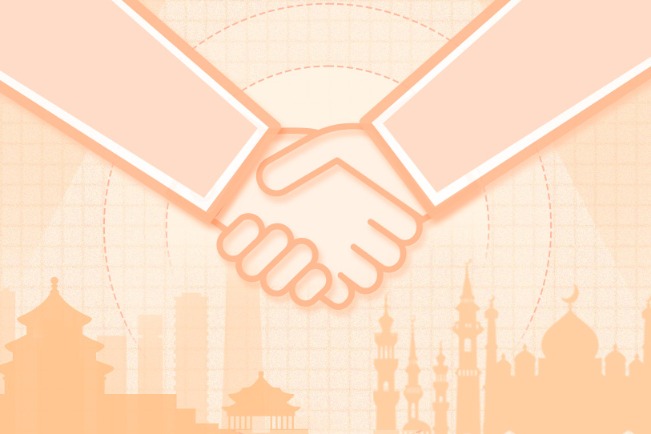China-EU investment deal to secure open and fair markets for both sides


The anticipated signing of the long-awaited Comprehensive Agreement on Investment between China and the European Union will secure open and fair markets for both sides, while building a solid foundation for productive future engagements, according to European business leaders.
The two sides are believed to have made "positive progress" during the 35th round of CAI negotiations held last week. The talks focused on remaining issues, including text and lists. China and the EU have held 10 rounds of CAI talks this year, according to information released by the Ministry of Commerce.
The teams from both sides will continue their efforts to achieve the negotiation's goal-to reach the CAI by 2020-Gao Feng, the ministry's spokesman, said on Thursday.
The recent signing of the Regional Comprehensive Economic Partnership is expected to boost trade and investment activities within the Asia-Pacific region. Similarly, a China-EU CAI will make China a vital trading destination and create more opportunities for companies from Asia and Europe, as well as support the growth of the Belt and Road Initiative, said Zhang Jianping, director-general of the Beijing-based China Center for Regional Economic Cooperation.
Schott AG, the German producer of specialty glass and a supplier of pharmaceutical packaging, believes that both regions can benefit from better free trade deals.
"We are looking forward to the early signing of the CAI, and we have already talked to many of our customers in China to convey that we are in support of building a closer relationship," said Frank Heinricht, CEO and chairman of the management board of Schott AG.
"I am definitely positive about the outlook, and I think that Europe and China are coming close to each other," he said, adding that the company has invested 320 million euros ($380.32 million) globally in its 2020 fiscal year and most of it has been used to expand production capacity in China.
China's early recovery from the COVID-19 pandemic, the rebounding consumption levels and efficient production resumption have helped global companies in China to remain viable and profitable compared with other parts of the world, said Julien Hueber, executive vice-president of Industry Solution and Project Business Group at Nexans, a French cable manufacturer.
Hueber said the China unit, which is also the global headquarters of Nexans' industry solutions and projects business unit, will continue to play the strategic decision-making role of the regional headquarters.
"Our strategic focus is to base ourselves in China and cover the whole Asia-Pacific region. China's business environment is continuously improving, especially its performance in the prevention and control of the pandemic has boosted our confidence and enhanced China-EU business ties via the accelerated pace of CAI talks," he said.
Supported by two manufacturing bases in Jiangsu and Shandong provinces, Hueber said the company will keep adding investment in China, introducing advanced production lines abroad, integrating and restructuring advantageous assets and technologies and enhancing the supply chain.
Thanks to the complementary industrial structures between China and the EU, and booming China-Europe freight train services, China replaced the United States as the EU's largest trade partner in the third quarter, reflecting the resilience and potential of bilateral economic and trade ties, the Foreign Ministry said earlier this month.
China's foreign trade with the EU jumped by 4.7 percent on a yearly basis to 4.05 trillion yuan ($620 billion) during the first 11 months of this year, according to the latest trade figures unveiled by the General Administration of Customs.
Michael Friede, global head of Covestro AG's coatings, adhesives and specialties segment, said the German company hopes that global trade will become easier in the future, together with the future signing of the CAI.
"If you have a healthy global trade system, you can tackle a number of challenges that exist around the world in terms of creating jobs, facilitating trade and investment," he said, noting the company is keen to see China and the EU seal the CAI as soon as possible.
In addition to expanding its sales and innovative activities in China, Friede said the Leverkusen-headquartered company plans to ship more products made from its plants in China to other markets, especially in their automotive, construction, furniture, electronics sectors in the Asia-Pacific region.




